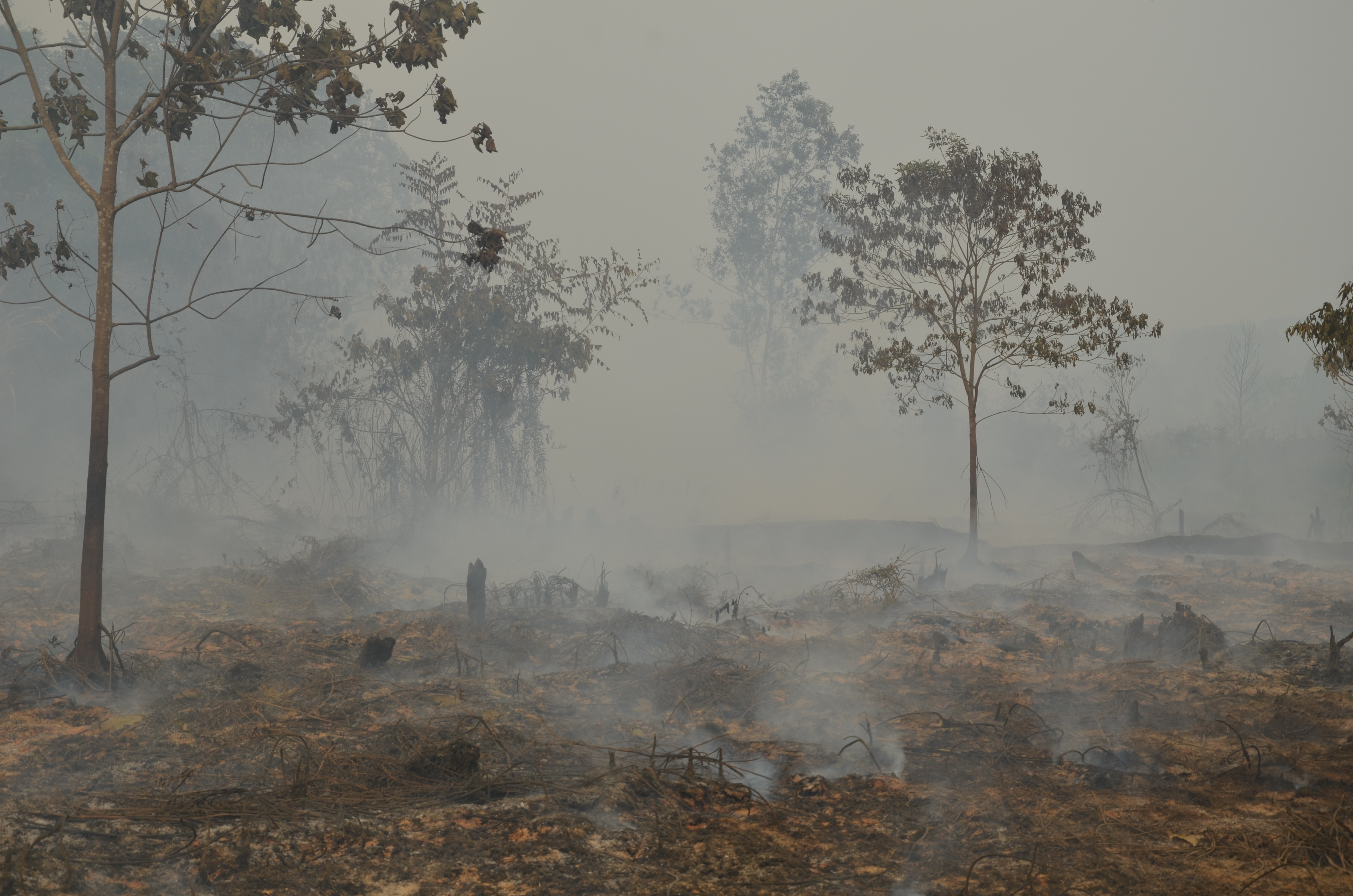
Photo Credit: Dessy Ratnasari
FIRE
Socio-Economic and Political Drivers of Oil Palm Expansion in Indonesia:
Effects on Rural Livelihoods, Carbon Emissions and REDD
Since 1990, oil palm plantation area in the province of West Kalimantan has increased 50-fold, resulting in the conversion of extensive swaths of lowland tropical forest and increased vulnerability of peat swamp forests to severe fire. This research examined the effects of biomass burning for oil palm development on fluxes of biologically important plant nutrients to peat swamp soils.
Our results showed that this Bornean peatland receives some of the highest P and S deposition reported globally, and that N deposition exceeds critical load limits suggested for tropical forests. Further, we found that biomass burning associated with agricultural peat fires is a major source of N, P, and S in throughfall and could rival industrial pollution as an input to these systems during major fire years.
Collaborators: Lisa M. Curran (PI), James Holland Jones, Dessy Ratnsari, Alice McDonald Pittman.
Funded by NASA LCLUC.